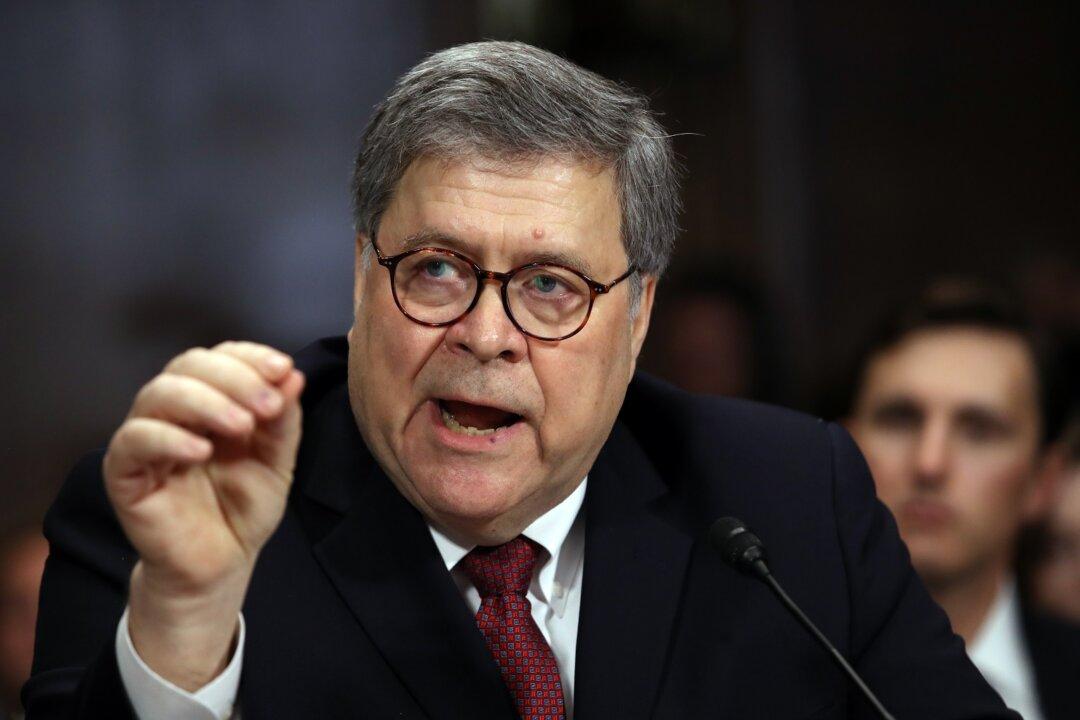WASHINGTON—Democratic leaders are threatening Attorney General William Barr and other Trump administration officials with subpoenas, contempt citations, and possible jail time for refusing to testify before House committees.
The threats mark a complete reversal from their stance in 2012, when Eric Holder, then-President Barack Obama’s self-described “wingman,” was the nation’s chief law enforcement officer.





